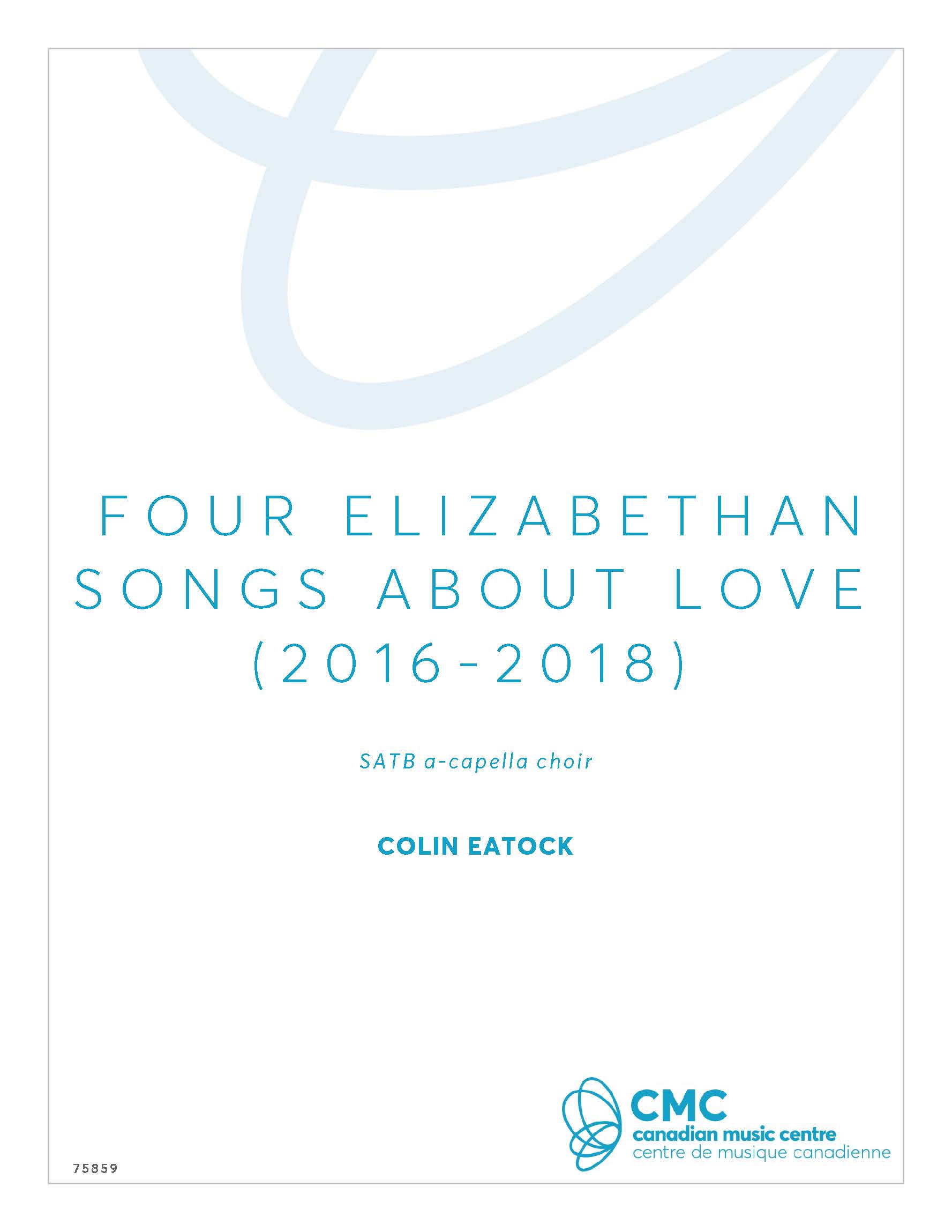I almost titled this work “Four Elizabethan Love Songs.” However, while such a title might be appropriate for a group of songs about the joys of loving relationships, the texts I have chosen do not all fit that mold. Of the four, only Christopher Marlowe’s seductive “The Passionate Shepherd to His Love” and Shakespeare’s wise and insightful Sonnet 116 address requited love. On the other hand, John Donne’s “The Message” is an angry poem about love gone wrong, bursting with bitter recriminations. And Elizabeth I’s “When I Was Fair and Young,” is wistful and full of regret: the Queen realizes that her own youthful pride has obstructed her opportunities for happiness. Together, these poems offer four dramatically contrasting views about love. TEXTS I: The Passionate Shepherd to His Love Come live with me and be my love, And we will all the pleasures prove, That valleys, groves, hills, and fields, Woods, or steepy mountain yields. And we will sit upon the Rocks, Seeing shepherds feed their flocks, By shallow rivers to whose falls Melodious birds sing madrigals. And I will make thee beds of roses And a thousand fragrant posies, A cap of flowers, and a kirtle Embroidered all with leaves of myrtle; A gown made of the finest wool Which from our pretty lambs we pull; Fair lined slippers for the cold, With buckles of the purest gold; A belt of straw and Ivy buds, With coral clasps and amber studs: And if these pleasures may thee move, Come live with me, and be my love. The shepherds’ swains shall dance and sing For thy delight each May-morning: If these delights thy mind may move, Then live with me, and be my love. II: When I Was Fair And Young When I was fair and young, then favour graced me. Of many I was sought their mistress for to be. But I did scorn them all and answered them therefore: Go, go, go, seek some other where Importune me no more. How many weeping eyes I made to pine in woe, How many sighing hearts I have not skill to show, But I the prouder grew and still this spake therefore: Go, go, go, seek some other where, Importune me no more. Then spake fair Venus’ son, that proud victorious boy: You dainty dame, for that you be so coy, I will pluck your plumes as you shall say no more: Go, go, go, seek some other where, Importune me no more. As soon as he had said, such change grew in my breast, That neither night nor day I could take any rest, Wherefore I did repent that I had said before: Go, go, go, seek some other where, Importune me no more. III: The Message Send home my long stray’d eyes to me, Which, O ! too long have dwelt on thee; Yet since there they have learn’d such ill, Such forced fashions, And false passions, That they be Made by thee Fit for no good sight, keep them still. Send home my harmless heart again, Which no unworthy thought could stain; Which if it be taught by thine To make jestings Of protestings, And break both Word and oath, Keep it, for then ’tis none of mine. Yet send me back my heart and eyes, That I may know, and see thy lies, And may laugh and joy, when thou Art in anguish And dost languish For some one That will none, Or prove as false as thou art now. IV: Sonnet 116 Let me not to the marriage of true minds Admit impediments. Love is not love Which alters when it alteration finds, Or bends with the remover to remove. O no! it is an ever-fixed mark That looks on tempests and is never shaken; It is the star to every wand’ring bark, Whose worth’s unknown, although his height be taken. Love’s not Time’s fool, though rosy lips and cheeks Within his bending sickle’s compass come; Love alters not with his brief hours and weeks, But bears it out even to the edge of doom. If this be error and upon me prov’d, I never writ, nor no man ever lov’d.

